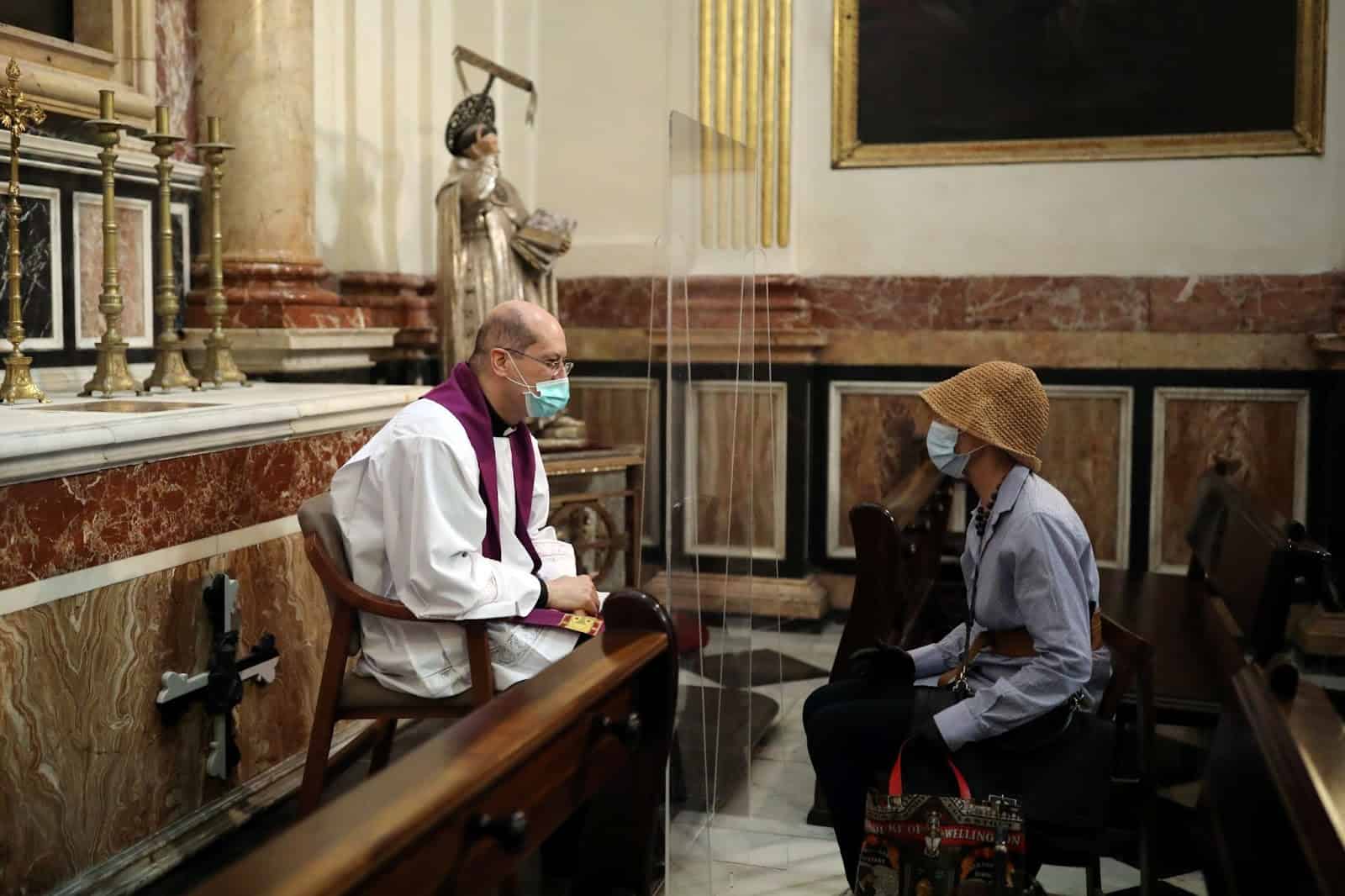There are a lot of popular (mis)conceptions that surround the sacrament of confession (or the sacrament of penance and reconciliation as the Catechism calls it). To many people, the image of confession can evoke feelings of discomfort or hesitation.
In my experience, I have found that much of the doubt and confusion surrounding confession is colored by two common misconceptions: that my sin is just about me, so I shouldn’t have to talk to a priest and that confession is a shameful or hurtful process.
Many people question the need to confess to a priest as opposed to just in private prayer, seeing confession as an arcane and outdated practice. Others, having heard stories of negative experiences in the confessional or seeing depictions of the sacrament in film and television fear that the confessional is a place of belittlement, shame, and punishment.
We Catholics don’t always do a great job of counteracting these ideas either. How often do we speak of the beauty of the sacrament of confession? How often do you convey the deep intimacy that lies at the heart of this gift we have been given?
Confession, like all other sacraments, is a gift through which God has made His saving love and mercy real and present to us. In his desire to set all people free and draw them into the authentic peace that is communion with God, Christ entrusted his ministry of reconciliation to the apostles.
In this, through confessing to a priest we are not only reconciled with Christ, but with the community of the Church as well. Often we can liken our relationship with the Church to that of a membership within a club or our political affiliation. But that is not the case.
Our relationship with the Church is personal, intimate and like any honest relationship, it requires forgiveness and healing. The priest is the representative of both Christ and the Church which is Christ’s body.
And it is through the sacrament of confession that Christ offers us the privilege to bear our hearts to him, seeking his help as we strive towards a life of holiness and ultimately, eternal life with him.
—
Much of the fear and hesitation that prevents people from seeking out confession ultimately comes from a deeper misconception of what sin is. Often when we make an examination of conscience (prayerful meditation over our sins before confession), we look at God’s commandments and begin constructing the laundry list of how we’ve failed.
But in doing so, we fail to recognize that God’s commandments are not merely a list of things that feel good yet aren’t supposed to be done. We forget that the commandments given to us by God through the prophets and through Christ are part of a covenant, that they all point towards our relationship with God.
Examining our consciences shouldn’t point us to a scrupulous listing of every fault and error we can think of, but instead to an honest account of how we have failed to love God, our neighbor, and ourselves.
I recall sitting down for confession with a priest in my freshman year of college, nervously stumbling over the opening words, having not gone to confession in a while. The priest simply smiled and comfortingly said, “Just tell me what is weighing on your heart son.”
That is the precise question Christ is presenting us with in the sacrament of confession.
It is important to note that not every experience of confession I have had has been as moving as that day in college. There have been times when my confession has felt quick and the priest’s response uninspiring. Leaving the confessional in these moments, I can be tempted to see them as transactional or simply disappointing.
When this happens, I try to focus on that voice that called me to confession in the first place, reflecting on the wound or weight I was carrying and my desire for healing. Praying for humility and patience, I try to remind myself that grace, while seemingly subtle, is inevitably at work in these moments.
—
When we are able to examine our sinfulness with greater depth and honesty, we are then able to invite Christ into those parts of ourselves we originally thought irredeemable or untouchable by his love. In encountering and receiving the love of Christ in this intimate way, we begin to receive the call essential to the Christian life: conversion.
We know from the prophets and from Christ that a life inspired and formed by the Gospel is not easy, and we cannot do it on our own. Confession offers us the grace to be honest about that reality. In doing so, we begin the work every Christian has undertaken from the first apostles to today, to work to shape our hearts after the One that loved us first.
The fear and hesitation we feel in the face of confession makes sense. Perhaps there are parts of our hearts we are scared to look at or perhaps we feel a sense of loss or desire to have more control over our struggles.
Perhaps we have had an experience in confession that was uncomfortable or hurtful. Whatever the source of our fear may be, it is a movement we should bring to prayer, discerning where Christ is calling us in the midst of it.
My hope is that through this discernment we may all recognize Christ’s desire: to be desperately close to us.
Christ does not await us in confession with a response of shame or disgust. Christ awaits us with the same love and compassion he details in the parable of the Prodigal Son. The prodigal son plans to approach his father ashamed and state that he is no longer worthy to be called his son. Yet before he can do this, “his father caught sight of him, and was filled with compassion. He ran to his son, embraced him and kissed him” (Lk. 15:20, NAB).
And how else can we respond to such love except with humility and contrition in our heart?


